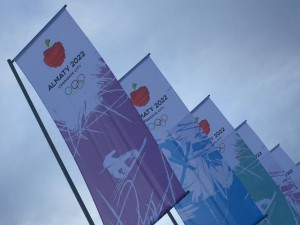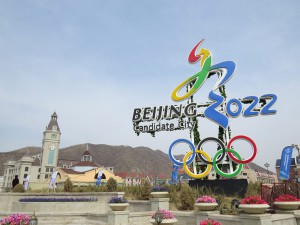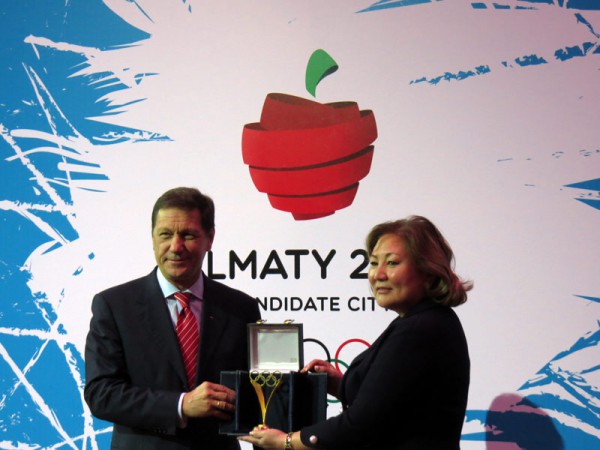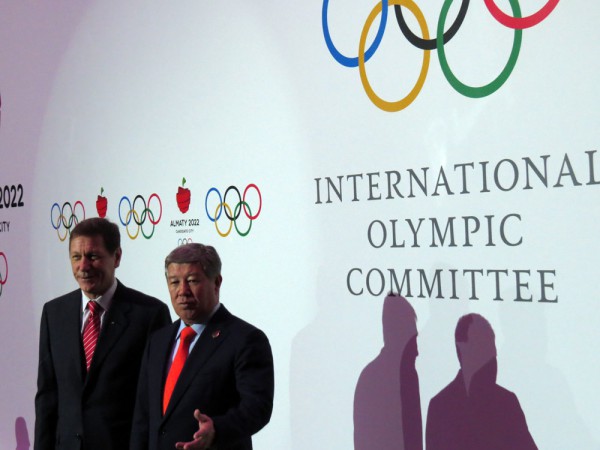
It’s a close race, GamesBids.com has revealed in its latest edition of BidIndex – the first evaluation for the 2022 Olympic Bid. Beijing at 57.01 holds the slimmest of leads, 0.57 points ahead of rival Almaty with 56.44.
When Almaty last bid for the 2014 Olympic Winter Games it failed to make a shortlist with a BidIndex score of 42.28.
BidIndex, a formula used by GamesBids.com to score Olympic bids based on what characteristics they share with past successful bids, has been newly adjusted to take the International Olympic Committee (IOC) Agenda 2020 bid reforms into account. In the past three Olympic bid campaigns, the city with the highest BidIndex has been elected by the IOC to host the Games.
The proprietary formula takes into account more than 100 bid fundamentals, each weighted differently depending how well they correlate with past IOC decisions. Categories such as public support, climate, venue footprint, transportation infrastructure and more are used to determine the aggregate score.
Typically, BidIndex is first released months before the final election with updates along the way – but due to Agenda 2020 and its changes that have impacted the bid process – GamesBids.com has worked to revise the index and has provided a score just 10 days before IOC members cast their votes.
[box style=”0″]
Beijing 2022: 57.01
Almaty 2022: 56.44
[/box]
The model is designed to score bids relative to bids that have occurred in the past and based on that both Almaty and Beijing have scored generally lower than the leaders in previous campaigns who have all finished the race with 60 or above. The 2022 race that began with six bids has deteriorated to two after four strong European contenders dropped out, one-by-one, due to various political and economic challenges prior to the IOC’s Agenda 2020 bid reforms passed last year. Almaty and Beijing had been considered outsiders in the race yet both are now poised to host the Games.

Almaty claim to be right in line with Agenda 2020 with ready-built venues, natural snow and a compact footprint requiring only minor infrastructure development. However with a questionable human rights record, lack of deep hosting experience and being relatively unknown to IOC members – the former Kazakhstan capital will have to work extra hard for votes.
Beijing, however, lacks a compact overall footprint, sufficient natural snow and a winter sport culture – a trio of weaknesses noted by the IOC that would typically be difficult to overcome. But following the Beijing 2008 Summer Games the Chinese capital is well known to IOC members and certainly has the ability and experience to work it all out. The reuse of the “bird’s nest” stadium and “water cube” – to be transformed to the “ice cube” – and other venues from the Summer Games are Beijing’s compelling nods to Agenda 2020.
Also burdened by a poor human rights record and broken promises regarding air pollution controls proposed during the 2008 bid, Beijing will also need to work hard for votes.
[box style=”0″]
Click here to visit the the BidIndex site for full details.
[/box]
The vote in Kuala Lumpur July 31 will be the first real test of Agenda 2020 bid reforms and whether IOC members fully embrace the new ideas that they unanimously approved at a session on Monaco last year.

However, one key reform was never passed – the reinstatement of bid city visits by IOC members that were eliminated after the Salt Lake City “vote buying” scandal in 1998. Since then a small bid evaluation group instead visits each candidate city then files a report to be presented to the rest of the IOC membership.
Since many members are familiar with Beijing through the 2008 Olympics and far less have been to Almaty – the playing field is lopsided in favour of the Chinese capital.
In its report, the IOC Evaluation Commission was remarkably candid with its observations – and this information was used to help build the final BidIndex results.
Almaty has less to build, especially if the full transport infrastructure is included in the equation, and the legacy of the Games is more likely to be embraced by Kazakhs than the Chinese – seemingly an Agenda 2020 win for the lesser known destination.
But it may be too early in the IOC’s Agenda 2020 experiment for the IOC members to get fully behind it, and easier for them to pick a familiar choice.
There is only one number that really counts and the IOC will tally their ballots from the 2022 host city election July 31 at the 128th session in Kuala Lumpur, Malaysia.


